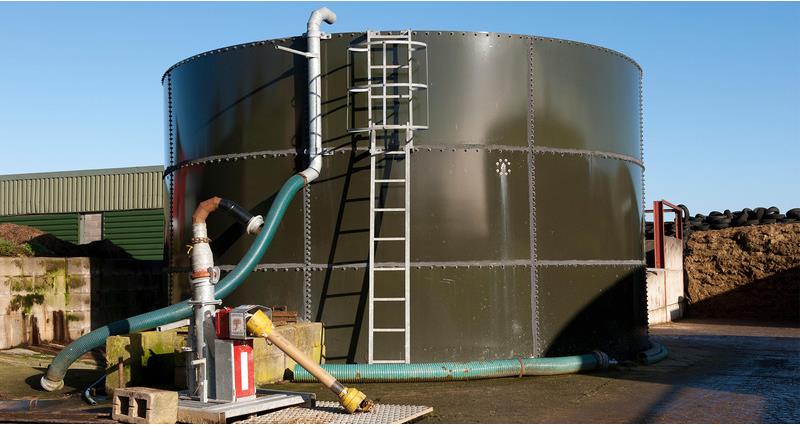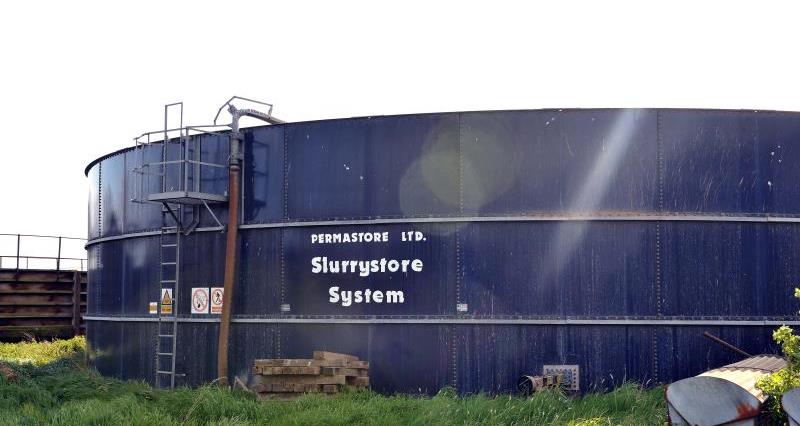The EA (Environment Agency) has launched a new campaign, aimed at ensuring farmers have enough slurry storage in place for the coming winter.
The ŌĆśWinter ReadyŌĆÖ campaign asks farmers to prepare storage now, have a ŌĆśrobust back up planŌĆÖ in place, and to contact the EA with any concerns.
While the NFU also encourages farmers to think ahead, we know that many are still suffering the aftereffects of wet weather and face other challenges around slurry storage.
And, while we would like to see a better working relationship between farmers and the EA, members may wish to take independent legal advice before making contact.
Members can seek advice through NFU CallFirst or one of our legal panel firms and contact the EA via their local officer, or by calling its National Customer Contact Centre on 03708 506 506.
ŌĆ£ItŌĆÖs important that farmers start thinking about the potential challenges ahead and plan to minimise any risks. I'd encourage our members to contact NFU CallFirst for advice and support.ŌĆØ
NFU Vice President Rachel Hallos
Tackling slurry storage issues ŌĆō EA advice
The EA is promoting the following actions as potential solutions for expected storage challenges:
- Ensuring you have adequate storage to see you through winter without the need to spread. The EA recommends having six months of storage to help comply with the requirements of the Farming Rules for Water to spread only according to crop and soil need.
- Covering slurry tanks, lagoons and pits and using the summer months to fix draining and clear guttering to ensure separation of clean and dirty water, meaning less rainwater mixes with slurry to increase its volume.
- Refraining from taking sludge, digestate or other materials if you donŌĆÖt have an immediate need for them. Even if you are contracted to take these materials, all producers have a responsibility to ensure bi-products and waste are properly disposed of.
Published on:
Planning barriers and available funding

Watch again: Slurry Infrastructure grant round 2 ŌĆō the latest guidance and what it means
Some farmers will, where necessary, be able to consider taking one or more of these actions, but we know that many will find them challenging.
Installing extra storage, for instance, is a costly endeavour and farmers face a difficult economic backdrop, planning barriers, and regulatory uncertainty.
There have been two rounds of grant funding for slurry stores, and we await news on a third. ╗╩╝ę╗¬╚╦is asking for the scheme to work better for farmers. See our key asks of government on planning.
It is also worth noting that, outside of NVZs (nitrate vulnerable zones), the legal minimum requirement for slurry storage is four monthsŌĆÖ worth rather than the six recommended by the EA.
Cost effective solutions
It can also be difficult for farmers to cover existing stores, particularly where a lagoon is used or a tank cannot take the extra weight.
Again, some grant funding is available, but the government has committed to requiring covers by 2027 and farmers may, therefore, be reluctant to invest at this stage. Separating clean and dirty water by fixing drains and clearing guttering may well be the most practical and cost effective step for many farmers.
Seek contractual advice
Finally, the EA is urging farmers to avoid taking biosolids and digestate from others unless there is an immediate need for them, possibly even where there is a contract in place.
While some might be able to do so, we would encourage members to take independent legal advice before refusing to take any material to which they are contractually obliged to accept.
We have also urged the EA to ensure that producers of such materials are aware of their responsibilities around disposal.
Remember: NFU members can seek advice through NFU CallFirst or one of our legal panel firms.
NFU Vice President urges farmers to minimise the risk
NFU Vice President Rachel Hallos said: ŌĆ£After one of the wettest periods on record, slurry storage on many farms came under pressure, so itŌĆÖs important that farmers start thinking about the potential challenges ahead and plan to minimise any risks.
"Essential on-farm infrastructure should be in place; check stores have sufficient capacity and are fit for purpose, operating as expected and with no signs of leaks, to prevent slurry from reaching local watercourses.
ŌĆ£Some members face significant financial barriers to having sufficient slurry storage so look to take advantage of any funding opportunities that are available such as the Capital Grants (formally CS grants) and Slurry Infrastructure Grant.
ŌĆ£Consider other requirements too such as the necessary planning and building arrangements. We know some members have experienced issues with planning so itŌĆÖs important to seek the necessary permissions at the earliest opportunity etc.
"We would also encourage our members to contact the NFUŌĆÖs CallFirst for advice and support.ŌĆØ




